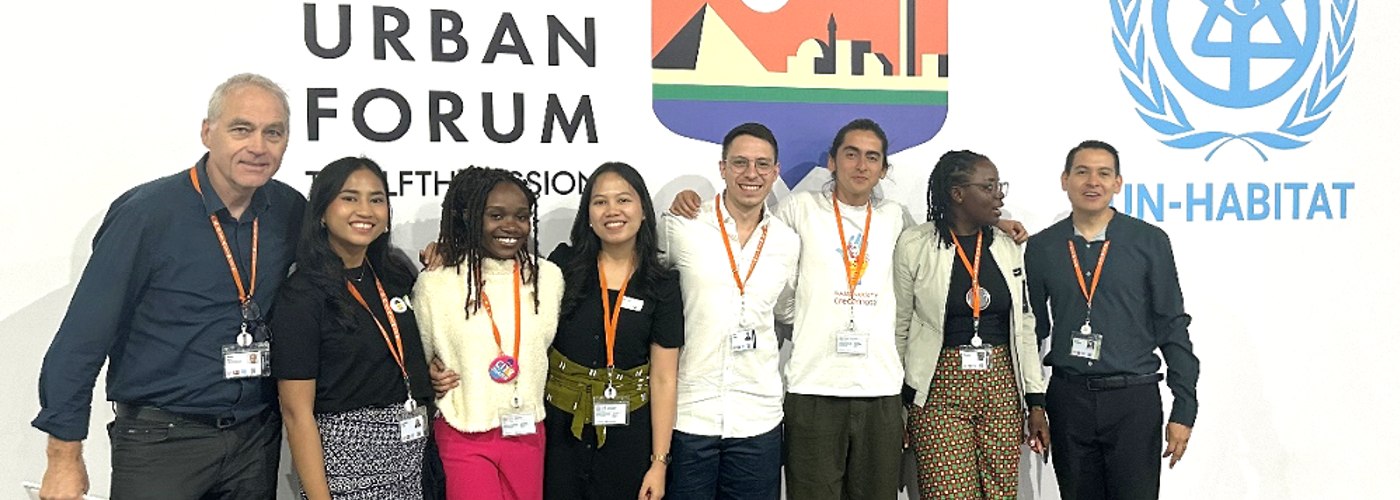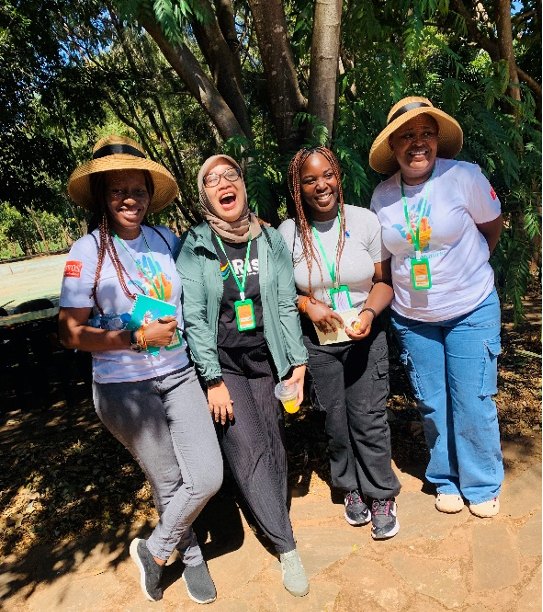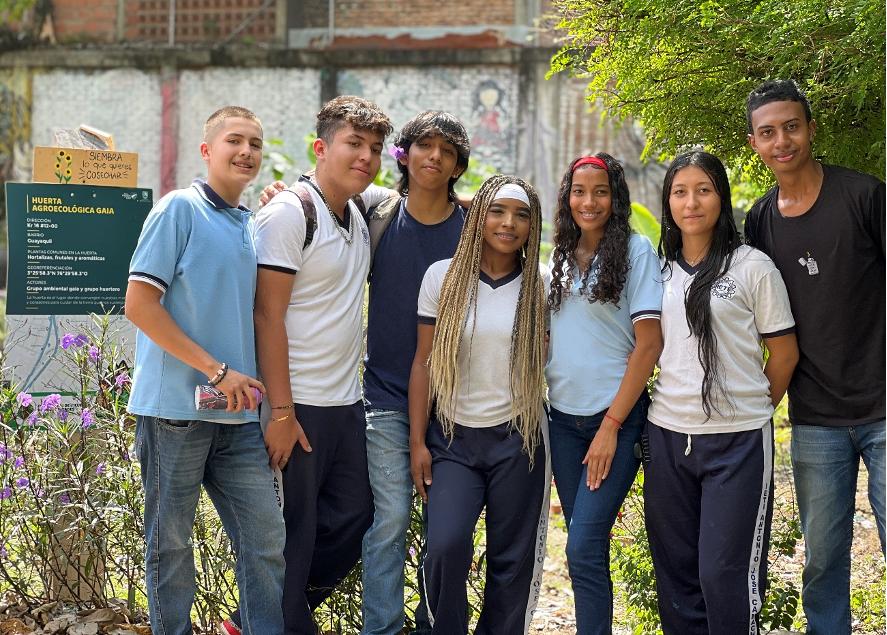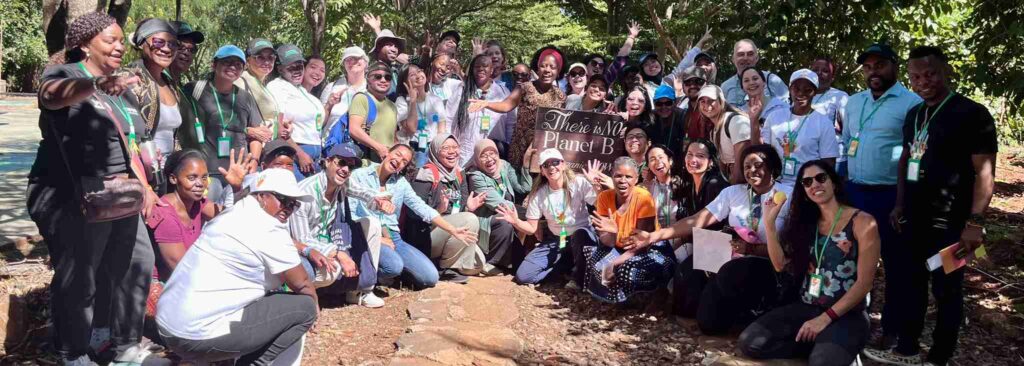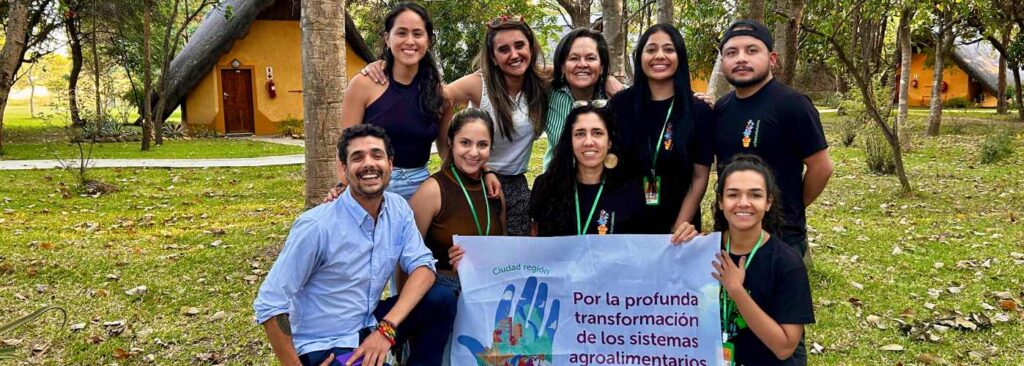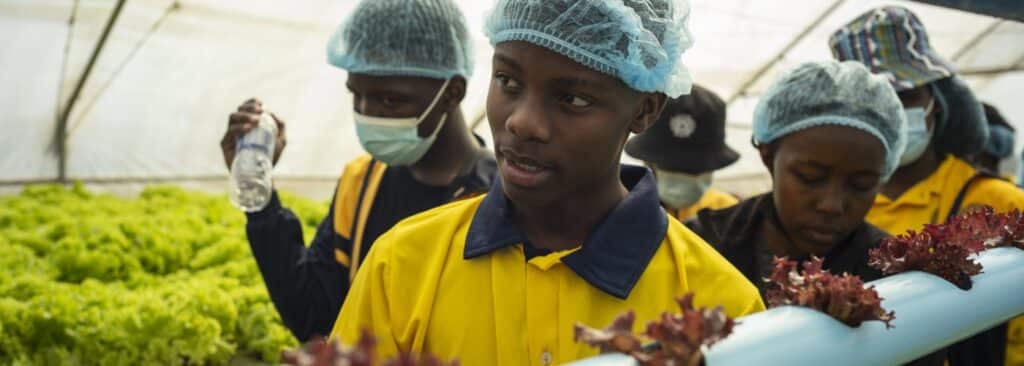By Diego Orellana, Global Urban Futures Project Manager
Urban food systems face immense challenges: they both consume over 70 percent of the world’s food and significantly contribute to environmental degradation. Among the 1.7 billion food-insecure people globally, many reside in urban and peri-urban areas. They also struggle with inequality, climate change, and malnutrition. Tackling these issues is essential not only for creating sustainable food systems but also for securing the future of younger generations.
Hivos’ Urban Futures initiative, supported by Fondation Botnar, empowers youth as drivers of more inclusive, sustainable and climate-resilient food systems. This and other initiatives supported by Botnar highlighted the critical role of youth during the 12th World Urban Forum (WUF12) in Cairo, Egypt, from November 4 to 8, 2024.
WUF12, convened by UN-Habitat, explored the theme It All Starts at Home: Local Actions for Sustainable Cities and Communities in the context of youth inclusion, migration, and innovative urban financing. Under the banner “City Shapers,” young participants from Botnar-funded projects shared experiences, collaborated, and showcased their contributions to sustainable urban development.
Hivos, RUAF, Safer Cities, and Dreamtown held a session called “Youth Voices and Innovations in Climate-Resilient Urban Food and Water Systems.” Our young leaders presented their solutions and engaged with local authorities on food and climate challenges, underscoring the importance of youth-driven decision-making in shaping resilient urban food systems.
Why youth leadership matters in food systems
Engaging youth in agriculture and food systems ensures long-term sustainability. Young people are open to sustainable practices that tackle both food deserts and food waste. Their innovation and easy collaboration quickly establishes networks that can transform knowledge and practices within food systems, making them more adaptable and inclusive.
Youth participation also enhances health and nutrition outcomes, improving diet quality and food security while fostering a sense of global citizenship and community belonging. Their involvement builds healthier, more connected societies.
Additionally, youth engagement in community food activities fosters self-esteem and supports holistic strategies to combat malnutrition and hunger. Their contributions help create socially inclusive food systems that address hidden hunger and systemic inequalities.
Key takeaways from our youth participants at WUF12
- Inclusivity and youth engagement:
Participants highlighted the importance of urban policies that actively involve youth in decision-making. Bergita Gusti Lipu from Indonesia said, “Young people want to be seen not just as passive recipients but as active participants in urban development planning.” She stressed the importance of implementing youth-friendly urban policies and creating spaces for youth participation. - Peer-to-peer learning:
The forum facilitated invaluable exchanges between participants. Esteban Barriga from Ecuador praised the opportunity it offered for international collaboration on shared challenges like sustainable urban development. He described discussions with Juan Pablo Cobo from Colombia as “a foundation for building partnerships across regions.” - Technology and innovation:
From using Minecraft to envision cities, to employing digital tools and innovative methods, participants embraced the transformative power of technology. “The power of teamwork and digital tools showed us how to engage youth more effectively, said Albertina Luyanga from Zambia. She plans to mobilize young farmers and drive awareness campaigns in Zambia. - Local actions, global impact:
Representatives emphasized the need to start creating global change at home. Nobukhosi Ndlovu from Zimbabwe aims to address food waste management and youth inclusion in the food value chain, blending sustainability with community well-being. “By taking small, impactful steps, we can inspire our communities to change,” she said.
Acting at home
Youth representatives are committed to applying the lessons learned from WUF12 within their local contexts. In Zimbabwe, Nobukhosi Ndlovu plans to train youth in sustainability and food waste management as well as mental wellness, thus taking a more holistic approach to community engagement. In Colombia, Juan Pablo Cobo intends to incorporate digital platforms into his Urban Futures project to amplify youth voices and promote inclusive urban policies. Similarly, Bergita Gusti Lipu from Indonesia is going to work with policymakers to improve economic opportunities for youth in food systems.
Looking ahead
The active participation and innovative ideas of young people at WUF12 reaffirmed their pivotal role in addressing food system challenges. As cities continue to expand and climate challenges intensify, the role of young leaders in promoting sustainable practices, creating innovative solutions, and drafting inclusive policies is increasingly vital. By placing youth at the center of transformation and investing in their skills, voices, and ideas, programs like Urban Futures ensures that the next generation not only inherits but actively shapes more inclusive, sustainable, and resilient food systems for all.

